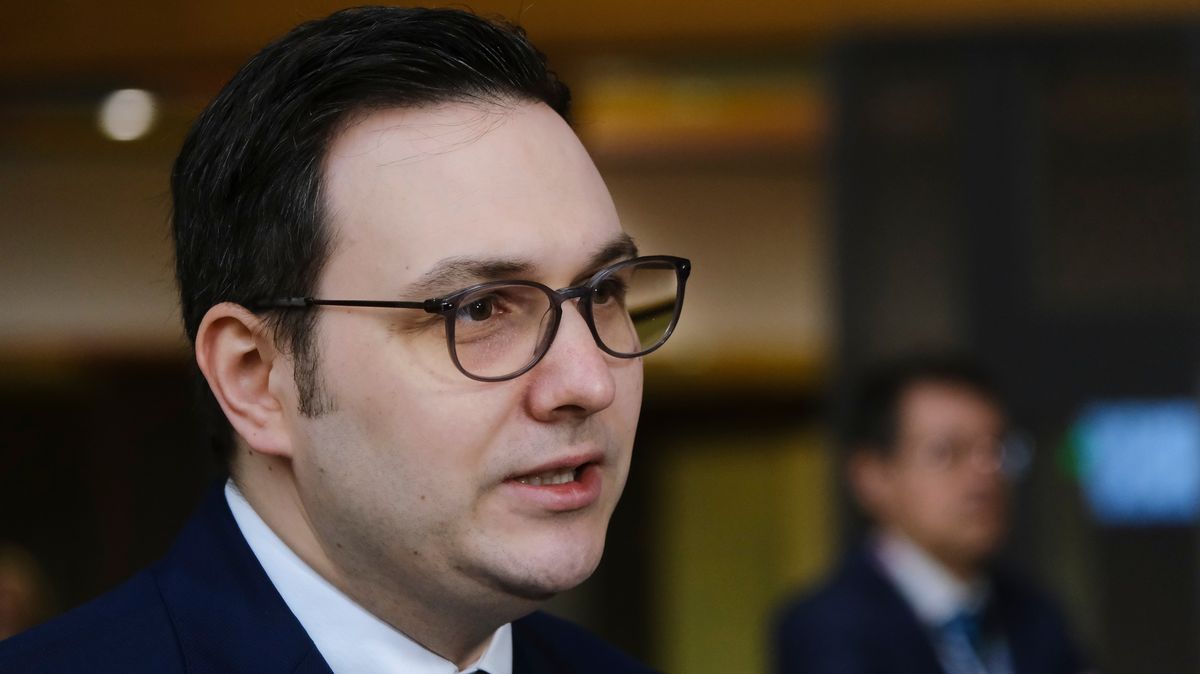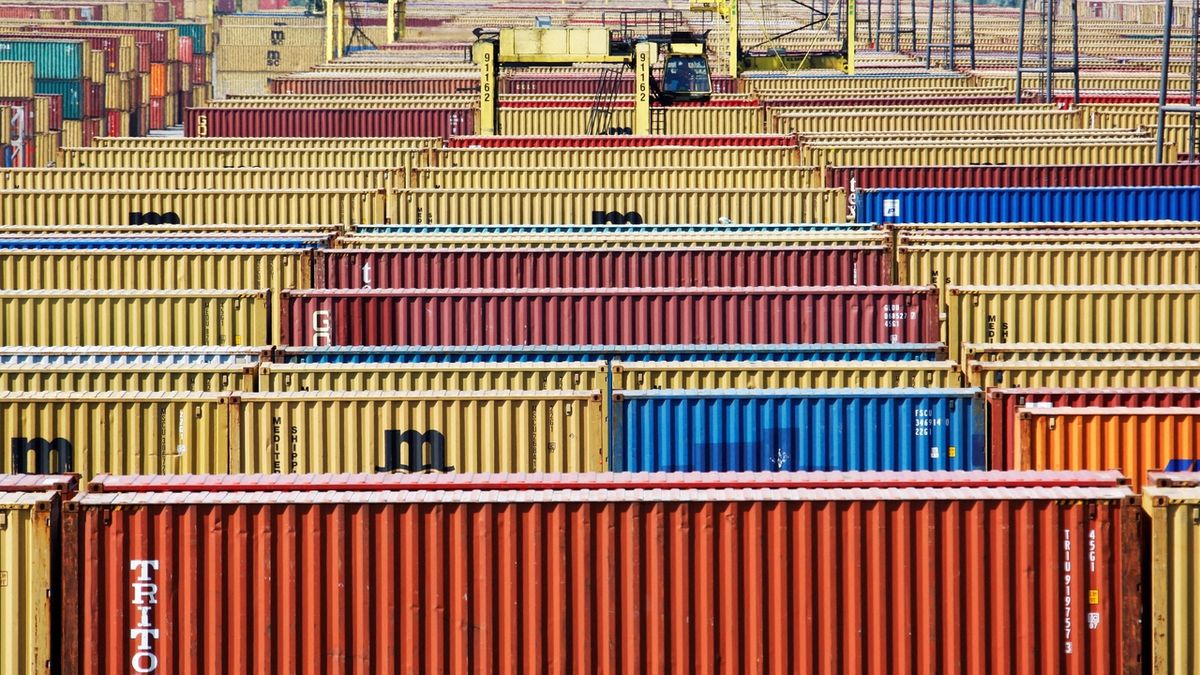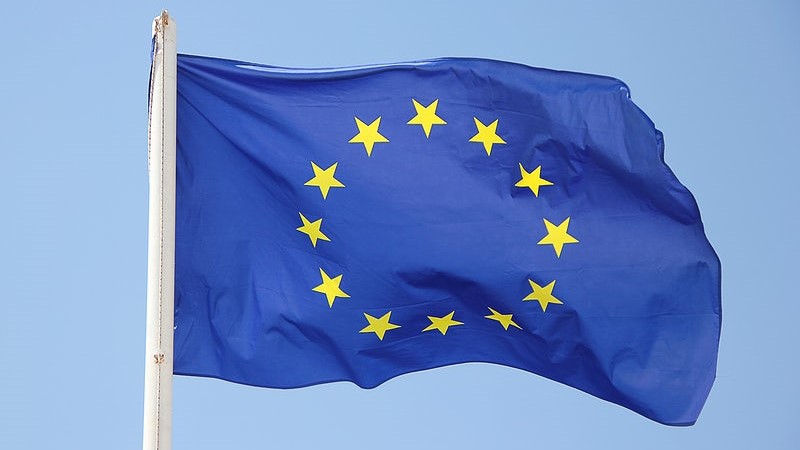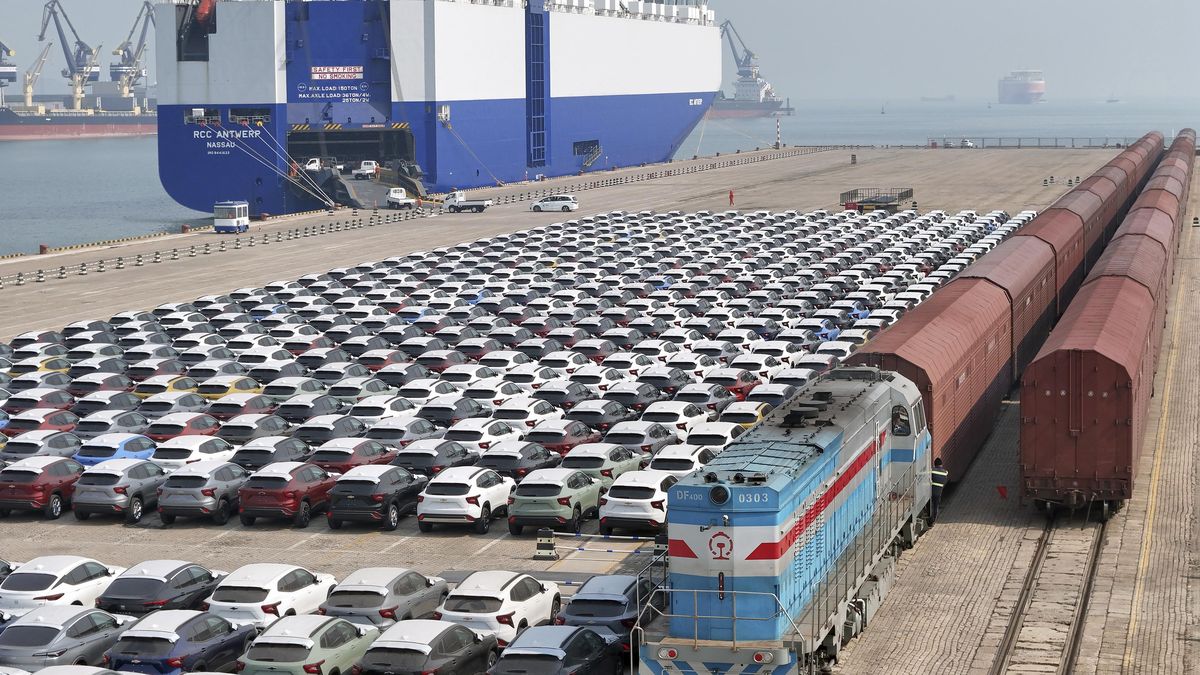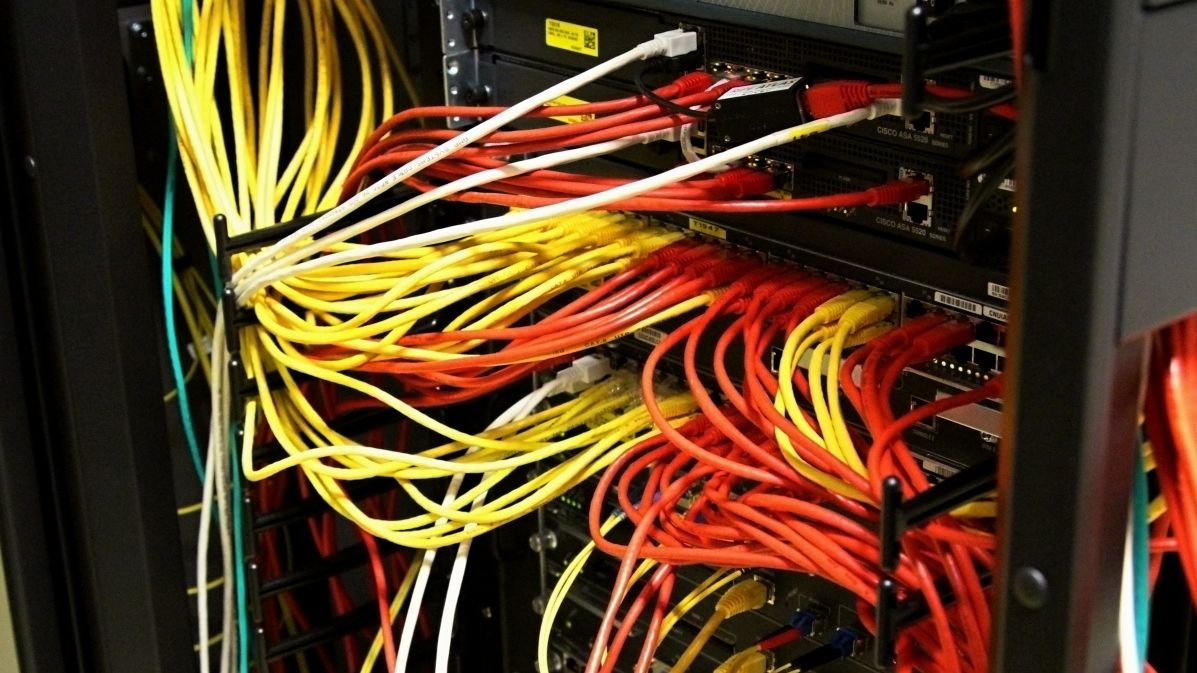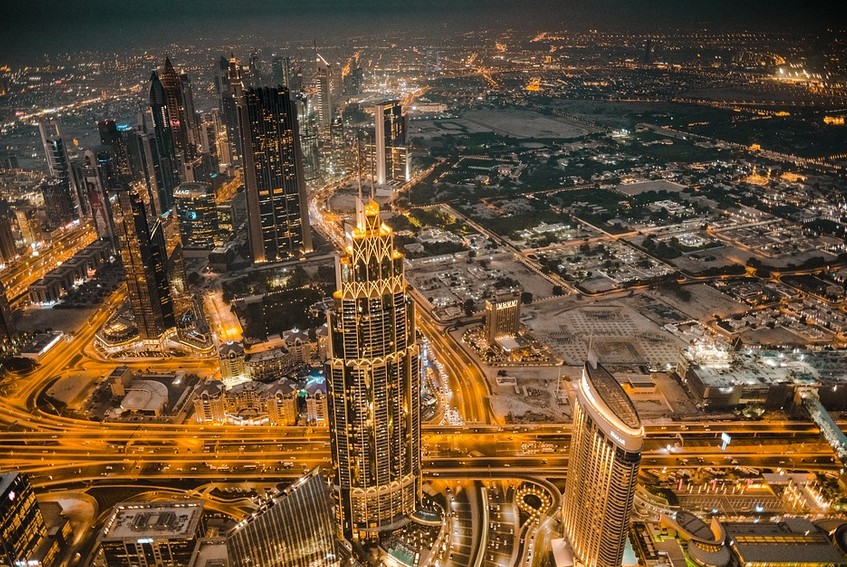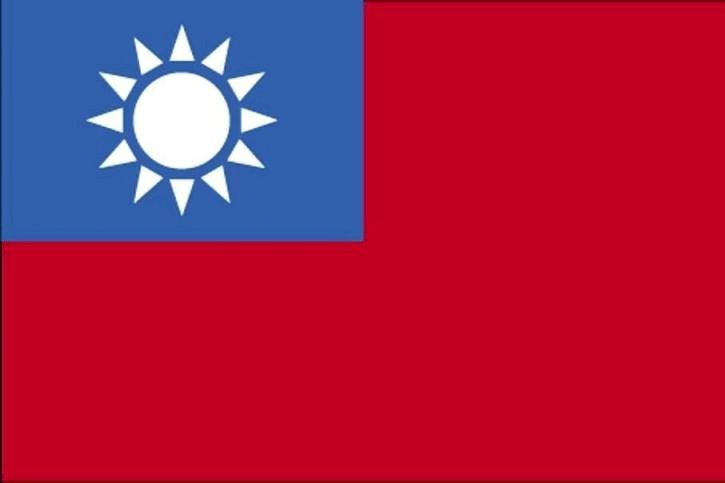/From a special correspondent in Vilnius/
The biggest issue at the NATO summit in Vilnius is the question of Ukraine’s path to the North Atlantic Alliance. Even in Kiev, they realized that before the end of the Russian war, the state’s accession to the organization was unrealistic. All members are obliged to defend the attacked country.
But Kiev, with the support of some members, such as Britain, Poland or the Baltic states, is seeking promises to speed up the process after the war ends. But he doesn’t have to wait for that because of the restraints of, for example, the US or Germany.
“If one day Ukraine is in the North Atlantic Alliance, it will bring peace to Europe,” Czech Foreign Minister Jan Lipavský of Pirates said in an interview to Seznam Zpravy in Vilnius, adding that Russia would not dare attack the Alliance.
“The door was open, they told us, but they didn’t show us where to find the door or how to get in. And we are ready,” Ukrainian Defense Minister Oleksiy Reznikov said before the NATO summit. On Monday, Ukrainian Foreign Minister Kuleba wrote that after intensive negotiations, the conditions for the Membership Action Plan were removed, which was meant to shorten Ukraine’s path to NATO, and he requested Ukraine’s invitation to the Alliance. Kyiv did not hide its high hopes before the summit. What happens if such hopes are not met?
We conducted the interview at a time when the political negotiations regarding the final declaration of the summit had not yet been completed and negotiations were still ongoing, and hopefully for some time during the summit, which started in about an hour (Summit starts on Tuesday at 1pm, watch ed.)they will continue. It is therefore difficult to predict what Ukraine’s reaction will be if we don’t already know what will happen at the summit.
The position of the Czech Republic, as always, is constructive. We take the position that the Alliance must be able to open the door for Ukraine, so that the Alliance can also lead Ukraine to that door. All of this must occur under the conditions that apply to membership in the Alliance.
It is not uncommon for summit conclusions to be adjusted until the last minute, as usually the previously agreed upon conclusions are confirmed. Doesn’t that mean there is disharmony within the Alliance?
On the other hand, this is not the first time that Putin has waged a brutal war on Europe, which is unusual, thus reinstating traditional geopolitics, where even the leaders and their positions mattered until the very last moment.
But the Summit had a very positive effect on the Alliance and its union. I welcome the Turkish president’s statement that he will send the accession agreement to Sweden for ratification. We’ve also seen other shifts. This is indeed a time when the Alliance has and must demonstrate its strength and unity, because otherwise it will make a bad impression on our ability to deter the enemy, in this case Russia.
What happened in Vilnius
Read SZ’s special correspondent at the top of the North Atlantic Alliance:
You say that traditional geopolitics is on the rise again. The importance of political signals is also growing, which is also reflected in the fact that every word is tuned in to the conclusion…
It’s the negotiator’s job to ignore every word. The political world and its reality will work with that text, we will come back to it and fulfill it. That’s why every word matters, not just a piece of paper.
Now we are in a situation where there is no room for hesitation and we must realize that Russia respects NATO, Russia internally fears the Alliance, even if there is no reason. Russia behaves in such a way that it will not attack NATO countries, and this is our great strength. If one day Ukraine is in the North Atlantic Alliance, it will bring peace to Europe.
Although we spoke before the start of the leaders’ meeting, President Petr Pavel said today at a NATO public forum that Ukraine needs reassurance and encouragement to see the “light at the end of the tunnel” and to be motivated and feel it. it will be part of the “NATO family” first Do you think this summit can give him such a boost? With a little anticipation…
Since World War II, no other country has sacrificed more for Euro-Atlantic values than Ukraine. They have been fighting for life and death for 500 days to defend against the Russian invasion, to defend democratic values and freedom, to defend Ukraine’s sovereignty.
I understand that President Zelenskyi needs to give clear goals and a clear vision even to war-weary Ukrainians that the struggle for independence and freedom has meaning and that the struggle for independence and freedom will allow Ukraine to freely decide whether it wants to be part of the European Union. and NATO. The Ukrainians have even written it into the constitution and today they literally have to fight for it in the trenches.
Photo: Filip Harzer, Seznam Zpravy
John of Lipava in Vilnius.
It would be a big mistake if the West as a whole, if the EU and NATO, reject Ukraine and fail to offer this perspective. I’m not saying that we should immediately accept it, which is even technically impossible. Ukraine must fulfill all the conditions, must complete them, in the case of the European Union, must carry out all the reforms of the rule of law and the fight against corruption. In the case of NATO, we know that will not happen before the war in Ukraine is over.
However, if we reject Ukraine and close its doors, the grave mistakes we have seen so many times in European history could be repeated, and the Ukrainian nation would then feel betrayed by the West. This will carry a fundamental risk to European security.
Zelensky’s warning tweet
Before arriving in Vilnius, the Ukrainian president made no secret of his anger at how NATO had been unable to agree guarantees for his country. Volodymyr Zelenskyi also explained why he ultimately decided to come to the summit, although there has been speculation that he may have shown his displeasure and not come.
“It’s about respect. But Ukraine deserves respect too,” he wrote on Twitter and wondering how the Alliance couldn’t agree to the wording of an invitation to Ukraine. “It is unprecedented and unreasonable that no time frame has been set for either the invitation or for Ukraine membership,” he added.
According to him, the delay opens up space for Ukraine’s membership in NATO to become part of talks with Russia. “For Russia, this means motivation to continue terror. Uncertainty is weakness,” said Zelensky.
You mentioned the end of the war as a condition for Ukraine’s possible entry into NATO, but a lot was discussed – armistice, armistice, etc. Aren’t such conditions an incentive for Russia and Russian propaganda to continue the war?
Vladimir Putin’s motives for going to war against Ukraine may be based on his completely false vision of the world through the lens of the Soviet empire. We do not know the realities of the internal dynamics of the Russian leadership. We see madness like Prigozhin’s and squabbles between various military groups and generals. We also see a whole series of propagandists who can change anything to suit the Russian narrative.
But it is important for us that Russia and its imperial ambitions do not disappear overnight and go with Vladimir Putin. We don’t know if Vladimir Putin will stay in power or if he will be replaced. After all, we know that Russia will pose a security risk to the Czech Republic and Europe for decades to come, as well as for Ukraine, and for the Baltics, and for Poland and many other countries.
We must organize ourselves accordingly and work according to security in Europe and security guarantees for Ukraine.
To win militarily, to push the enemy out of its territory, to restore Ukraine’s territorial integrity within the 1991 boundaries, these are essential so that Russia can no longer create more gray areas, “pseudo republics”, and for Russia to back to the principle that borders are legal. It will eventually bring peace to Europe, and one day we might even see a democratic Russia – but I wouldn’t count on that now.
We follow the NATO summit in online reports:
What role did Ukrainian President Volodymyr Zelensky’s recent trip to Bulgaria, Czech Republic, Slovakia and Turkey play? It is held just before the peak.
In my opinion, the trip itself is not directly related to the dynamics of negotiations in the North Atlantic Alliance. The Czech position has not changed at all, because it has been stable for a long time.
In Turkey, we witnessed the deeply moving scene as Zelenskyi brought back captured soldiers in Azovstal in a special government vehicle. We are very pleased to be able to loan President Zelensky the Czech plane for the trip. It is an honor for us that our special government was able to carry President Zelensky to four countries and return with additional passengers.
You mention that NATO is closed now, but you can feel the dynamic there. While the Baltic countries and Poland pushed for the policy of inviting Ukraine to the Alliance, the Western countries – Germany and the United States – hindered and postponed this activity. What’s the atmosphere like there?
I do not wish to comment on the internal dynamics of the negotiations within the North Atlantic Alliance. This is all unconfirmed information that comes from various memos, from internal negotiations. Each time, the situation slightly changed. In addition, the negotiations were carried out in secret. The key is the result.
On Monday, there was a turning point in the Turkish president’s attitude towards Sweden’s proposal. That leaves Hungary. What did Viktor Orbán play?
We repeatedly asked Hungary to work on this as well. I think Sweden will be a great asset for the security of the entire North Atlantic Alliance and will be a major asset for the security of the Baltic Sea. I believe that Hungary will also proceed with the ratification soon.
What is the breakthrough for Türkiye? Was it just waiting until the last minute to have a strong position, showing the shoulder, or was there some sort of backroom deal?
We could speculate about trade secrets… I haven’t heard of it at this point, but politics is done in many layers, there are also public and private parts of international relations.
Even at last year’s NATO summit in Madrid, we did not know Turkey’s position on signing the international agreement on Sweden and Finland’s accession to NATO until the last moment. And then right before the summit or at the summit, the Turkish leader Erdogan gives his consent to sign… Let’s say the Turkish side has a taste for choreography and for getting attention on the international stage. But it’s important to me that they give their consent.
Does Hungary also have a taste for choreography, or is Viktor Orbán overdoing it a bit?
I want Sweden to be in NATO as soon as possible. I wanted it to come at the top of Vilnius and now I’m sure we’ll see it in a matter of months.
There is a lot of talk about Ukraine, but the emphasis of most Western countries on the situation in the Indo-Pacific is also evident. How does this translate to the Lithuanian NATO summit?
The North Atlantic Alliance is working very intensively on the Indo-Pacific and China. It is necessary to recognize that various events that occur in the Indo-Pacific, or may occur there, have the potential to impact the global economy and security. We also talk about new technologies, artificial intelligence, arms races or issues of world trade disruption and supply chain security.

“Tv nerd. Passionate food specialist. Travel practitioner. Web guru. Hardcore zombieaholic. Unapologetic music fanatic.”

